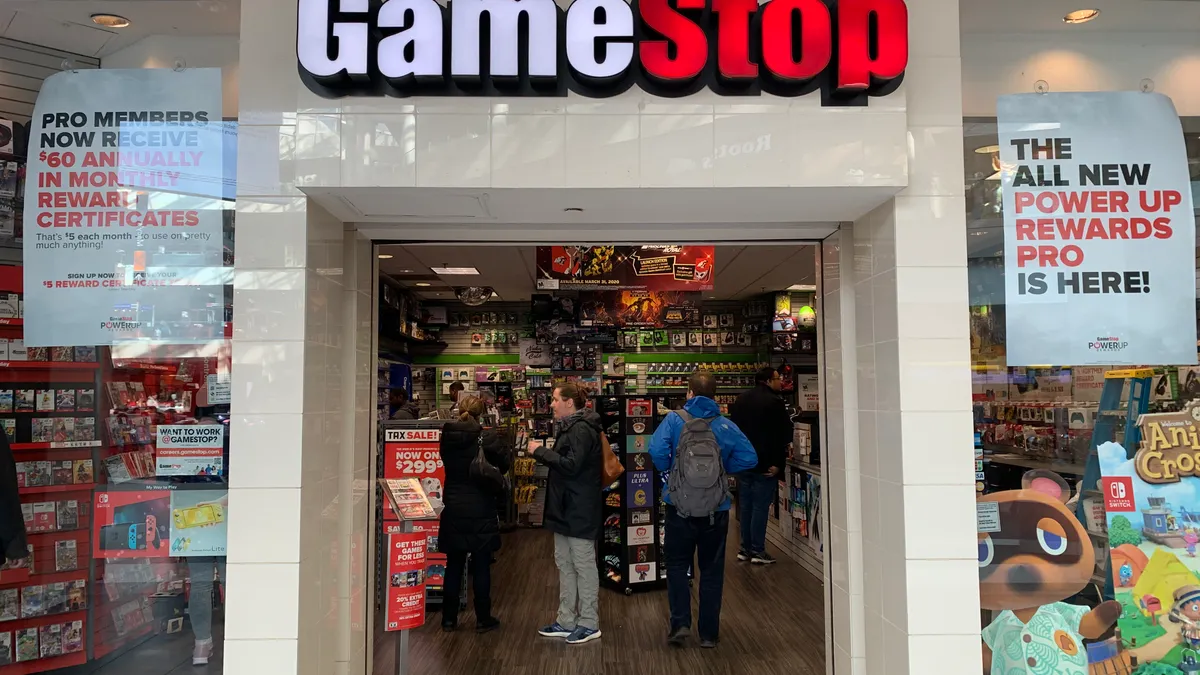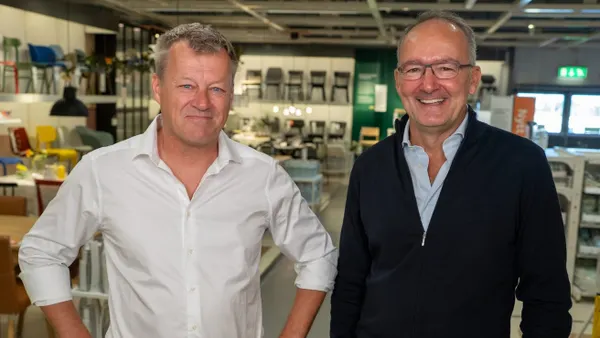Dive Brief:
- S&P Global Ratings upgraded GameStop's corporate credit rating, from B- to B, and gave the company a stable outlook based on "our expectation for better operating performance" and lower leverage levels, analysts said in a release.
- The upgrade comes shortly after GameStop raised around $550 million through an issue of new stock in the company.
- The gaming retailer used a chunk of that new cash to redeem all the long-term debt on its balance sheet, consisting of $216.4 million in senior notes, two years early. The remaining cash is there to help fuel GameStop's transformation efforts.
Dive Insight:
Even the most fervent GameStop bulls would probably have a tough time making an economic case that GameStop's stock would be worth nearly $350, as it traded for at one point during a raucous period of stock-buying earlier this year. And indeed, the retailer's stock hasn't reached those levels since, though it still trades at more than $150 — a price nearly 10 times what it was before the company's famous run on the stock markets.
Whatever drove the enthusiasm for GameStop stock — Reddit threads, Robinhood trading, anti-short seller sentiment, financial FOMO, or a genuine sentiment that the company was undervalued — it was a gift to the company.
Following the company's most recent earnings release, it went to the same market that sent its stock up and collected more than half a billion dollars in new cash from it. That money gives GameStop a good amount of flexibility in the short term, taking debt maturities out of the equation and providing some new capital as the retailer tries to reinvent itself for the digital age of gaming.
While its stock price grabbed many of the headlines, GameStop has been going through substantial changes at the corporate level this year. Chewy co-founder Ryan Cohen joined the company's board earlier in the year after taking an activist stake in the company in 2020 and demanded urgency in adapting new technological developments in gaming.
Cohen in short order came to head a committee tasked with transforming the company and was tapped to be chairman of the board. Since he joined the board, there has been substantive leadership turnover, including the departure of the CFO and CEO and a string of new executives with backgrounds in e-commerce and tech.
While Cohen has advocated for GameStop to turn itself into a "technology company," the retailer has revealed few details of what's in store. And its most recent performance numbers show the challenges of transforming. Sales in 2020 fell more than 20% from an abysmal 2019 performance that strengthened concerns about the retailer's ability to stay relevant as more games are sold through digital channels and in online formats.
Those questions haven't gone away. "GameStop remains highly dependent on physical video game sales, increasing long-term operating risks," S&P analysts Mathew Christy and Andy Sookram said in the release. "Its efforts to diversify have historically led to mixed results. We think the company remains heavily exposed to physical video gaming products."
The analysts also pointed to possible execution risks and new capital spending tied to transformation plans. But they also noted that economic growth and easing of pandemic effects, as well as uptake of new gaming hardware, are likely to help GameStop in the near term.















